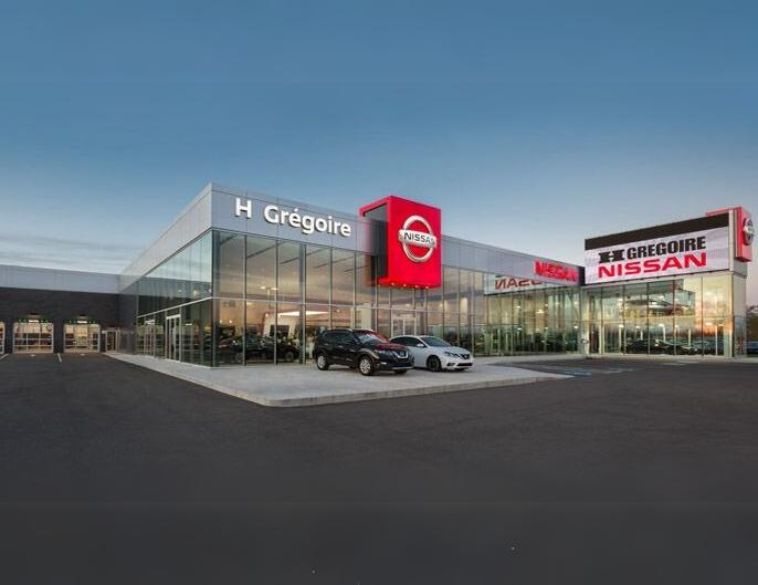Why age should not be a factor when it comes to employee productivity.
Most nations in the developed world are facing the reality of ageing populations, and Canada remains no exception. While immigration is somewhat helping to offset this issue, the fact remains that overall, our workforce is getting older. And that’s not necessarily a bad thing. Enlightened businesses and employers are finding that older people often have a wealth of knowledge and skills that are highly coveted and automotive retail is no exception. Yet barriers still exist, and ageism remains a problem, particularly among women. To help understand a little more about these barriers and how they can be overcome, Autosphere sat down with Diana Ricketts, Executive Vice President, Strategic Partnerships, at LGM Financial Services. Diana has spent her entire career in the automotive retailing environment, starting out in the dealership as a teen. This gives her a unique perspective on the industry and how to effectively transcend remaining multi-generational barriers.
Autosphere: Diana, thank you for joining us today. Tell us a little about your background and how you got started in automotive retail.
Diana Ricketts: I got started when I was very young, at age 19. This was the early 1990s and there were very few women in automotive retail at that time. This was also an era where many of the old cliches regarding car sales were still very much alive and well. I was singled out for my inexperience and, being a female; meant I had to work very hard to prove myself. I was lucky that I had some great mentors that helped me, but it wasn’t easy.
AS: Moving forward today, how would you say things have changed, both for you professionally and, also the industry as it relates to discriminatory practices?
DR: Things are most definitely different today, but barriers remain. I think one of the biggest ones is the notion that people in their 50s and 60s are seen as not being an asset to the business or the industry, in the same way, their younger counterparts in their 30s and 40s are. And I think that’s particularly applicable when it comes to women. I have seen evidence where some organizations actively discourage hiring anyone over the age of 40 and I feel that such practices actually do our industry a disservice. Older, more experienced staff often have invaluable knowledge and experience that is still extremely relevant and can be a major benefit for those businesses that take the time to invest in them.
AS: How do you think ageism factors into the high staff turnover that is often associated with automotive retailing?
DR: I think one of the many things to consider is the culture of the dealership or organization. If it is welcoming, inclusive, and collaborative, people of any age or background are much more likely to stay. If on the other hand, they don’t feel welcome or part of the team and aren’t encouraged or are passed over for promotion or responsibility they are much more likely to leave, because in all honesty, why would they stay? I think that applies to everybody, but I would say being female, this is particularly true among women, especially those who are older and more experienced, who have gained confidence and earned the respect of their peers, knowing that their skills are valuable and transferable. If one organization isn’t going to appreciate them, there is always another that will.
AS: One significant trend we’ve seen in automotive retailing over the last two decades is consolidation at the dealer level, with larger corporate groups becoming an ever more important part of the landscape. How do you think that impacts discriminatory practices in the work environment?
DR: With large dealer groups, there is an opportunity to put in standard operating procedures and policies. In smaller operations, this isn’t something you tend to find as much, and the staff tend to wear many different hats. When individual stores or family dealer businesses are acquired by larger groups, they really have no choice but to adopt standardized policies in place with that group. And in these larger organizations, there tends to be far less bias toward hiring practices and any type of discrimination when it comes to staffing. Today, we’re also seeing technology used more and more when it comes to HR practices and that also helps eliminate bias since the objective is to hire the right person for the job. When smaller dealers are acquired by a larger group, there tends to be a change in the culture, resulting in a much more professional working environment that, by its nature, eliminates bias and discrimination, since those dealerships cannot get away with these kinds of practices anymore.
AS: We do see some dealers that have very low staff turnover and productive, long-term, happy employees that customers love and come to them for all their vehicle needs. What do you think is key to that?
DR: It all comes down to taking care of your employees and ensuring they feel valued and appreciated. I think that building an inclusive culture that’s devoid of any kind of discrimination is key to that. When you have long-term employees like that, you’ve clearly given them opportunities to hone their skills and grow with the organization. And, I think, no matter your age or background, growth and learning are so important. We see dealers and organizations that are really successful because they focus on skill set and not age or gender, plus they create flexible working environments for their employees such as maternity or paternity leave practices. Ultimately, if you want your employees to stay long-term and maximize your productivity, you need to treat them well, respect and encourage them.
AS: Given that many businesses (including dealerships) today are suffering from chronic labour shortages, how do you think that impacts hiring and discrimination such as ageism?
DR: I think one of the first things we can do is brush aside any preconceived notions we have about age and demographic groups. Some examples include younger millennials and Generation Z who are viewed as being lazy and entitled and older Generation X members and younger Boomers who are seen as out of touch and set in their ways. At the end of the day, we need talented people in our businesses to help drive the industry forward and we need to look at their skill sets, their character and their willingness to learn and grow. That is where I think technology can make a difference, by removing biases and focusing on skills rather than age or gender. We have to start realizing that there are very skilled people out there, and we have to talk to all of them and hire for the role, regardless of their age, gender or background.
AS: Any final thoughts?
DR: We’ve been talking a lot about employees but customers also play an important role, since without them, we wouldn’t be in business. As a dealer, if you have great, long-term relationships with your staff, you tend to have the same with your customers. Ultimately, the goal of the dealership is to have those customers come back to you time and again, whether it’s for sales or service. By having a diverse team that includes older employees, there is an opportunity for a wealth of knowledge to be shared among the team. It’s important to know that with older staff members, while they may not always be up to speed on the latest technology, they have a lifetime of experiences to share and that’s something that can’t be taught. Ultimately, as a dealer, you are going to have a very diverse customer base and if you want them to connect with your business you also need a staff of varying ages and backgrounds that can relate to them. At the end of the day, automotive retail is a relationship business and that is something we must focus on if we are to be successful in the future.



